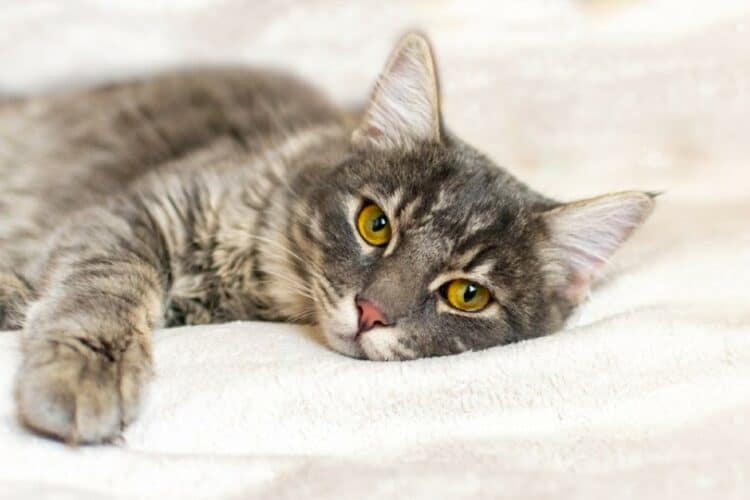Discovering a strange symptom in your cat can be a frightening experience, especially when it involves foaming at the mouth. In popular culture, foaming at the mouth in cats or dogs is often associated with rabies, but in reality, the situation is not always so dire.
There are various reasons, both serious and minor, why a cat may foam at the mouth. Here, we explore six of the most common causes.
The 6 Reasons Why Your Cat is Foaming at the Mouth
1. Overexertion
One common and relatively harmless reason for foaming at the mouth is overexertion. Intense physical activity can lead to panting and drooling, which may appear as foam. This is particularly true for cats that already have a tendency to drool. In such cases, providing your cat with water and allowing it to rest is usually sufficient. Be mindful of signs of heat exhaustion, especially on hot days.

2. Anxiety or Stress
Extreme anxiety or stress can also cause foaming or frothing at the mouth. Responses to panic or trauma can trigger excessive salivation, rapid breathing, and other changes that result in foam. While the foam itself may not be a major concern, addressing the underlying source of stress is important. Seeking professional evaluation can help determine the best way to assist your cat in coping with anxiety or trauma.
3. Dental Disease
Dental issues, such as tooth abscesses, oral injuries, oral tumors, and viral ulcers, can lead to foaming at the mouth. Additional symptoms like difficulty eating, halitosis, and signs of pain are usually present with dental disease. Regular dental care can help prevent many dental problems. If your cat is experiencing dental disease, consulting a veterinary dentist is essential.

4. Poisoning
Ingesting harmful substances can result in various symptoms, including foaming at the mouth. Despite vigilant efforts, cats may still encounter household cleaners, foods, insecticides, plants, or other toxins. If your cat is foaming at the mouth, look for additional signs of poisoning like vomiting, breathing difficulties, collapse, lethargy, or fever. If you suspect poisoning, contact your veterinarian immediately.
5. Seizure
Seizures in cats may present with classic symptoms such as collapsing and twitching, but foaming or drooling at the mouth can also occur. Seizure-related symptoms may vary, with some cats appearing stiff or distracted during an episode. Most seizures are brief and resolve quickly, but veterinary evaluation is recommended to determine the underlying cause.

6. Rabies
Rabies is a rare condition in domestic cats thanks to effective vaccinations. However, unvaccinated cats remain at risk. Rabies typically begins with subtle changes in behavior and energy levels, progressing to symptoms like foaming at the mouth, aggression, lethargy, and paralysis. Rabies is a severe disease with no known cure once symptoms appear, and it poses a significant risk to humans and animals. If rabies is suspected, caution is advised, and unvaccinated infected cats should be euthanized.
Remember to continuously monitor your cat’s health and seek veterinary care when necessary.
Final Thoughts
While foaming at the mouth can be alarming, it is essential to consider various factors that may contribute to this symptom. Although serious conditions like rabies are a concern, there are numerous less severe issues that can also cause foaming. If your cat displays this symptom, assess the situation cautiously and seek professional advice as needed.
Featured Image Courtesy: Shutterstock

